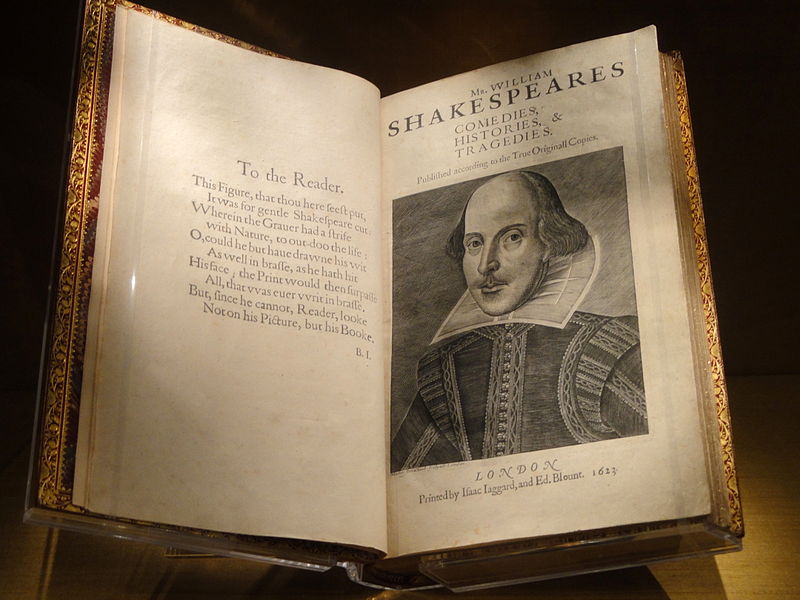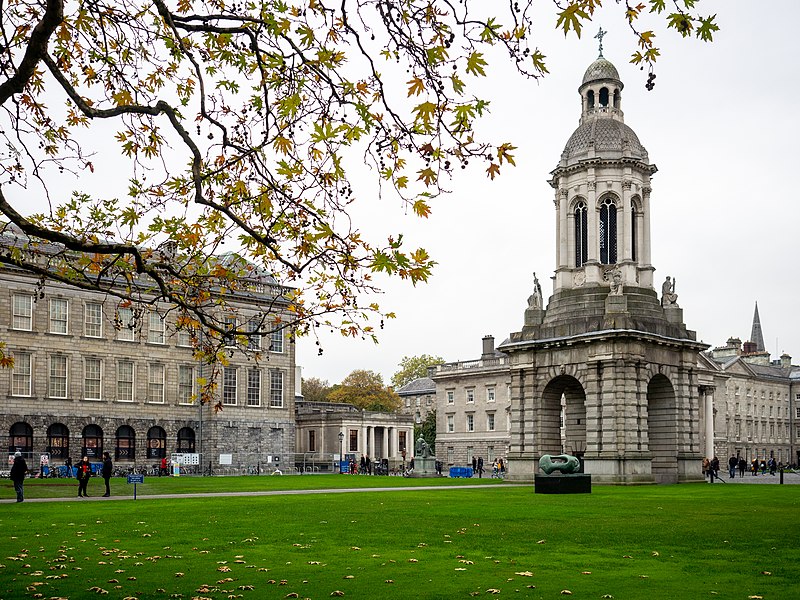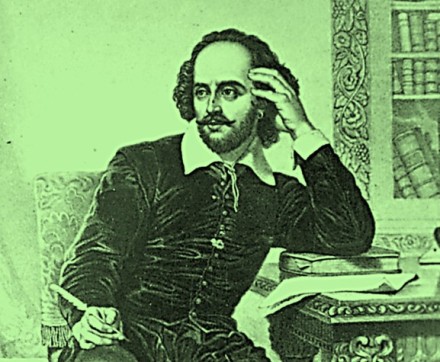A one-day symposium as part of the 400th anniversary of the publication of the first collected edition of Shakespeare’s plays.
The Trinity Long Room Hub Arts and Humanities Research Institute at Trinity College Dublin will host a one day symposium under the title ‘Shakespeare the Irishman’ from 9am to 5pm on Friday 14th April.
The symposium is hosted by Prof Andy Murphy of Trinity’s School of English and it will feature papers from Neil Rhodes (University of St Andrews, UK), and from Mark Burnett, Emer McHugh and Molly Quinn-Leitch (Queens University Belfast); Patrick Lonergan and David O’Shaughnessy (University of Galway); Stephen O’Neill (Maynooth University); Jason McElligott (Marsh’s Library) and Marc Caball (University College Dublin).
The event is open to the public and is free to attend, but registration is required. See eventbrite for tickets.
The symposium is part of a week-long series of events at Trinity celebrating the four hundredth anniversary of the publication of the Shakespeare First Folio, including an exhibition in the Long Room of the Old Library, an online exhibition, and a public lecture by Prof Andy Murphy on the history and significance of the First Folio and of Trinity’s own copy of the volume on Wednesday 12th April. Attendance at the lecture is open to the public free of charge, but registration is required.
Symposium Program:
9:00-9:15 Introduction & welcome – Andy Murphy
9:15-10:00 Stephen O’Neill (Maynooth): ‘”This earth shall have feeling”: Looking for (Irish) Roots in Shakespeare’s Richard II’
10:00-10:45 David O’Shaughnessy (Galway): ‘Shakespeare and Irish Patriotism: Thomas Sheridan’s Coriolanus (1752)’
10:45-11:00 Break
11:00-11:45 Marc Caball (UCD) & Jason McElligott (Marsh’s Library): ‘Tralee, 1756: Shakespeare on the Atlantic Edge’
11:45-12:30 Molly Quinn-Leitch (QUB): ‘The Presence of Shakespeare Material Traces in Victorian Belfast (1837-1901)’
12:30-1:30 Lunch
1:30-2:15 Neil Rhodes (St Andrews): ‘Shakespeare and Yeats’
2:15-3:00 Patrick Lonergan (Galway): ‘Hamlet the Irishman’
3:00-3:15 Break
3:15-4:00 Emer McHugh (QUB): ‘Siobhán McKenna’s “Experimental Version” of Hamlet, or, Some Reflections on Writing About Irish Shakespeare Performance’
4:00-4:45 Mark Thornton Burnett (QUB): ‘Ireland’s Shakespeare: Cinematic Histories/Social Justice’
4:45-5:00 Close

Talk: “The Book that Gave Us Shakespeare: Four Hundred Years of the First Folio” – 12 April 2023
As part of the celebrations of the 400th anniversary of the publication of the first collected edition of Shakespeare’s plays – the ‘First Folio’ – Prof Andy Murphy of the School of English at Trinity College Dublin will give a public lecture at the Trinity Long Room Hub Arts and Humanities Research Institute on the history of the volume and why it is so important. Trinity holds the only copy of the First Folio on the island of Ireland and Prof Murphy will also speak about the particular features of the Trinity copy, including examining some of the peculiar marks and inscriptions to be found in the book.
The event is open to the public and is free to attend, but registration is required – see eventbrite here.






